MUKILTEO—Over one hundred residents attended Mukilteo City Council’s Regular Meeting on Monday, September 16, to voice their opposition to the rezoning the Harbour Pointe Tech Center property to a 200-unit multifamily residential project.
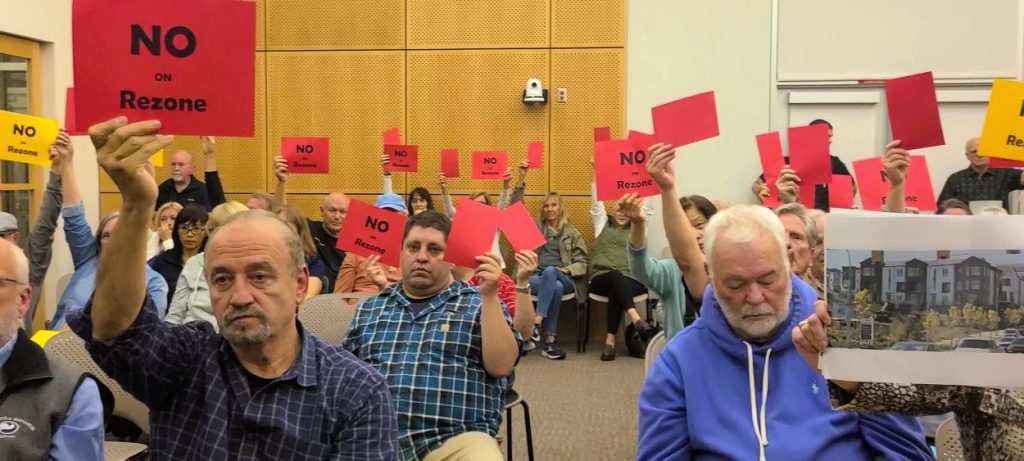
The voting action by the city council was postponed to October 7, 2024, given a mishap by the city in sending out adequate notices of the public hearing four day into its required 10-day lead-time. The action to delay was in response to a letter sent by Telegin Law on behalf of Sundance Homeowners Association to the City on September 13, urging the council to postpone its Monday public hearing.
Mukilteo resident Mark Daryl criticized City Councilman Tom Jordal for thanking city staff for doing a “great job” when he pointed out that if the staff had done a great job the city wouldn’t be entangled in a lawsuit and would have been able to vote Monday.
“I’m worried because all of this is going to sit, and all of our passionate comments—we may not be here for it again,” said Daryl. “I’m very disappointed in the staff tonight…horrible job! There is no big, horrid thing that’s going to happen if that building stays. That building was there before we got there, we have no problem with it…I’m getting fed up and I’m this close to selling my house and leaving Mukilteo. So, let’s try and make the right decision and get the next meeting right.”
Councilman Steve Schmalz asked the City Attorney what the “ramifications” could be if the city decided to vote Monday, and her response was that the city could face litigation.
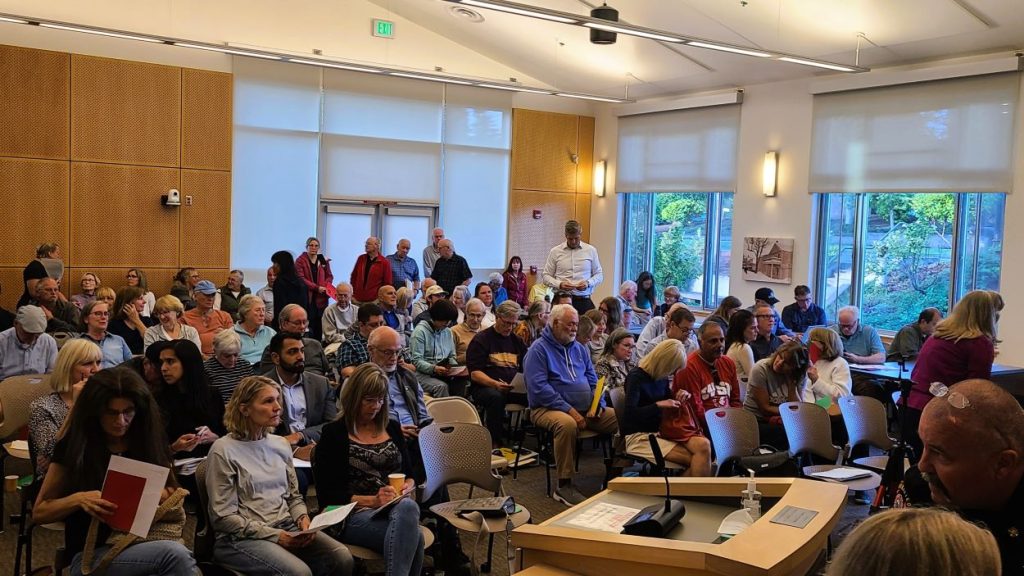
The City’s attorney clarified with the Lynnwood Times that residents who addressed the council on Monday’s Public Hearing will be allowed to testify again on October 7. The duration of a speaker is 5 minutes of Public Hearing testimony per person.
It was also revealed during the meeting that the developer, Tri Pointe, is willing to reduce the number of units from 222 to 200 in a letter to the City sent late last week. The multifamily rezoning would allow up to 600 units on the property, however the developer originally proposed a 275-unit project which they then reduced to 222 units, to now 200. The Planning Commission approved a cap of 180 units for the development.
The public hearing dealt with incorporating land acknowledgement language into the comprehensive plan and three rezones, two of which are city initiated—the Cannon Property rezone from residential to open space, and the Hawthorne Hall rezone from residential to downtown business. The third is a private application rezone for 6500 Harbour Heights which brought most of the attendees to Monday’s meeting.
The meeting largely consisted of public testimony spanning roughly two hours of the meeting’s three-hour runtime. To streamline the approximately 100 attendees’ agreement or opposition to points made, different colored cards were distributed to be held up indicating where attendees stood with what was being said at the podium. Green cards represented agreement with the speaker’s comment, whereas red disagreement.
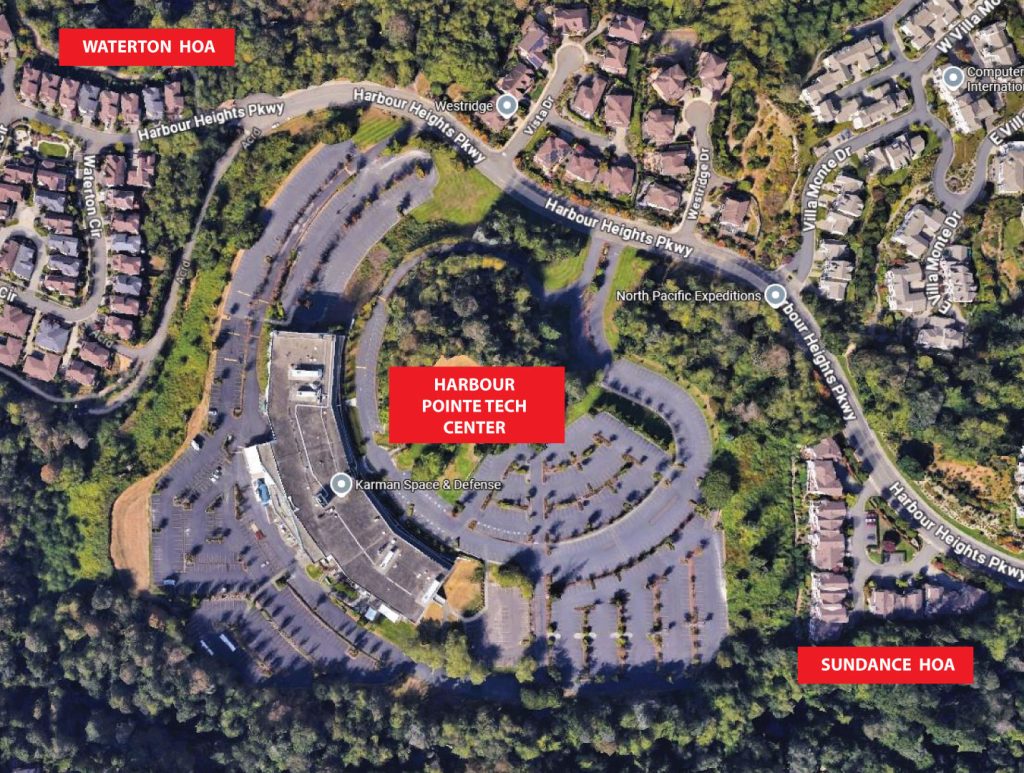
Byron Wright, who’s residence overlooks the 5200 Harbour Heights property, said that the City needs to preserve view lines, preserve appropriate setbacks and buffer zones, and “get density right.” His main point, however, was the process the city and developer took.
“My issue tonight is how many of the parties, especially the applicant, seem to view the whole public notice, comment, and review process as a merely perfunctory, pro forma, check-the-list, set of chores that are required of them and not use it as designed to actively receive and respond to public input,” said Wright.
Wright gave the example of a meeting held at the Rosehill Community Center on August 1 when the public were invited to discuss the 6500 Harbour Heights development but when the public tried to ask questions “they were basically told by the company that they were holding this meeting because they were told they had to have this meeting, and they were not here to answer any questions tonight.”
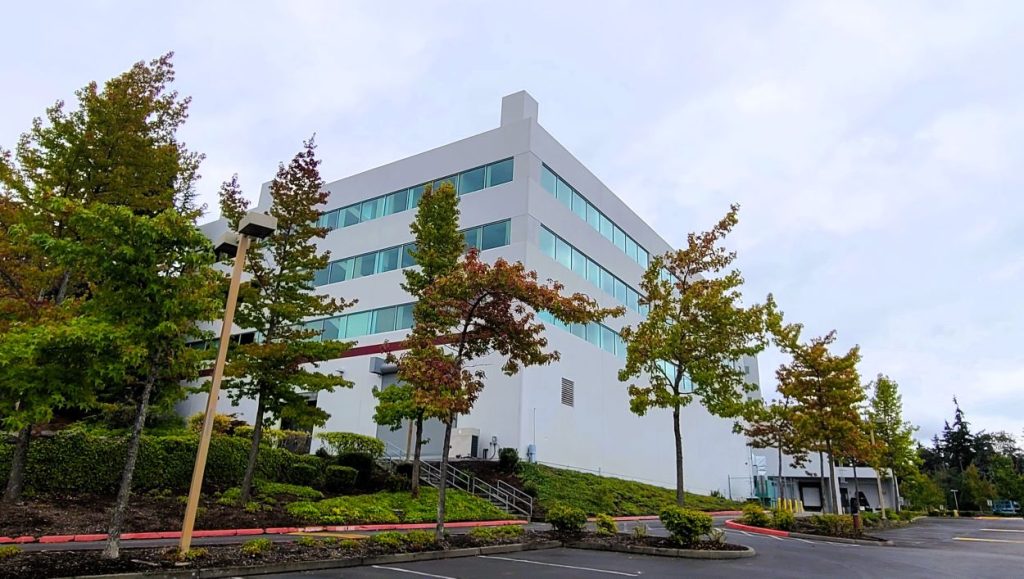
Some residents speaking against the Harbour Heights rezone brought up the point that the city was using “net density” in their calculations when they should have been using “gross density.” The proposed 222-unit project would equal about a 65% increase in density to the neighborhood which some residents said is not conducive with Mukilteo’s comprehensive plan, specifically where it states that rezoning should be “compatible with character of existing neighborhoods”. As it stands the surrounding neighborhoods are affluent, upper-middle class, suburbs mostly single family.
“If you start out at Waterton and work your way up the hill, look at all of the neighborhoods on both sides, take survey level data, measuring everything exactly, spend a couple hundred hours’ worth of work which some people here did, you’ll find out that on average, looking at all of those neighborhoods surrounding 6500 it’s real simple. In one acre there’s four homes and the green belt is about 47%,” said Mark Daryl, 30-year Mukilteo resident. “So, if you want to hold up to your own policies, it’s quite simple. If this has to be rezoned, it’s a really simple number, 136 in order to match our own policies, and you need 40% green space.”
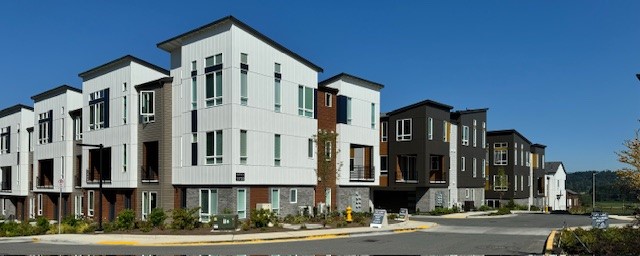
Kim Nelson, Harbour Pointe homeowner since 1985, also made the point that by rezoning the Harbour Heights property would not preserve the existing character of the surrounding neighborhoods, inconsistent with the City’s current Comprehensive Plan mission as stated under its Land Use and Policies section.
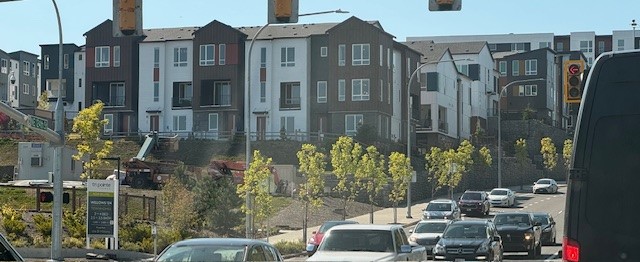
Rick Harper, Mukilteo resident, spoke against the “notion of the greater good as rational for approving the application” stating that the developer has yet to present any amenities that would benefit the citizens of Mukilteo while proposing actions that would create environmental damage —including a mass regrading.
“How in the world can that be concluded as the greater good?” asked Harper.
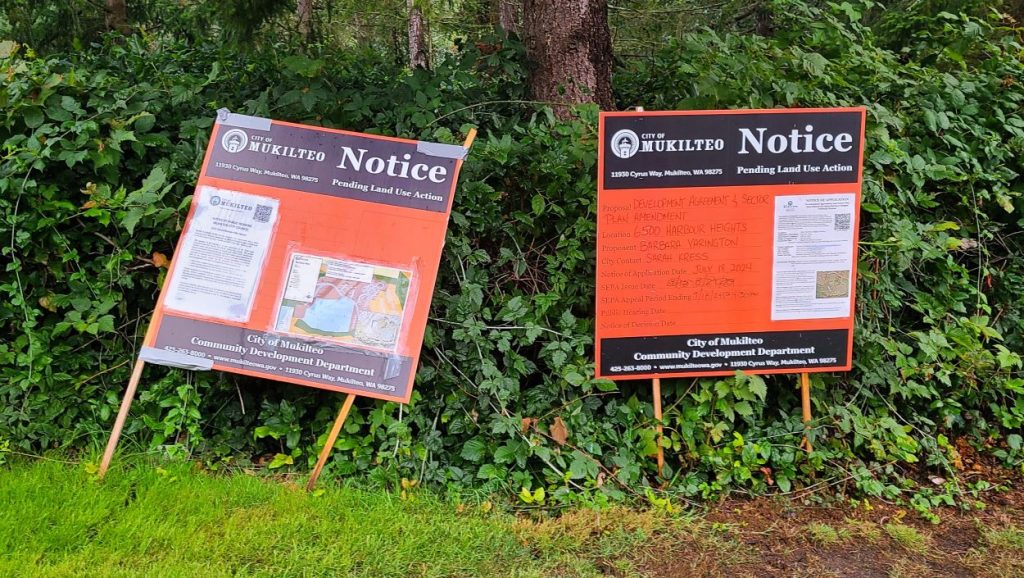
Other concerns brought up for the rezone included being no benefit to the community “other than monetary,” a misleading and questionable due process by city staff, an incomplete traffic analysis, capping the number of units to 136, and environmental concerns.
Out of the approximately 20 speakers most voiced their opposition to rezoning the Harbour Heights property with only one speaking in favor—the owner of the property Tom Prenzlow . One Mukilteo resident also spoke in opposition to Hawthorne Hall while a couple others spoke in opposition to the land acknowledgement statement citing historical inaccuracies in its language.
When the council returned from Executive Session, Councilman Schmalz had some words about Harbour Grove, a “seven lot subdivision on 2.43 acres of land” southwest of Nelson’s Corner in Mukilteo, of which the city is currently in litigation.
“It seems like the city is siding with the developers on all of this,” said Councilman Schmalz. “It just seems like the residents don’t really have a say in this and it’s kind of like a one-way street. I think we need to change the code language to help appeal to residents, to be able to be heard, especially when a permit is issued in their neighborhood, they should at least be given a timeline on when construction is going to start.”
David Tyler, Mukilteo resident who is also a plaintiff in the lawsuit against the City over permits issued in error for the Harbour Grove project, echoed Councilman Schmalz’s concerns stating:
“For Harbour Grove planning staff received a lot of public comments during project review and the response was to basically ignore it,” said Tyler. “The result was that the land use decision did not adequately address issues raised by the public or environmental impacts of the project…So there’s a lesson through the city’s flawed review process that may be applied to tonight’s proceedings that inviting public input but then ignoring it undermines public trust and makes citizens feel disenfranchised.”
RELATED ARTICLE
Author: Kienan Briscoe












